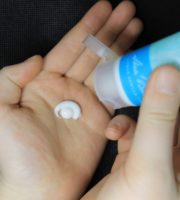We all love a good myth, don’t we? They’re intriguing, captivating, and have a certain ring of ‘truthiness’ about them. Yet when it comes to issues of newborn health, myths can be downright dangerous. In this article, we’re taking on these misconceptions head-on with science, shedding the light of reality on these oft-repeated newborn health myths. Let’s even address one about newborns and ceiling fans.
The Ceiling Fan Myth
The tale goes somewhat like this: if you allow a fan to spin in a room where your newborn sleeps, it could lead to Sudden Infant Death Syndrome (SIDS). This is purely superstition with absolutely no scientific backing behind it. In fact, according to the American Academy of Pediatrics (AAP), using a fan in your baby’s room may actually decrease their risk of SIDS by more than 70%, provided they’re sleeping flat on their back.
Babies Need Silences
Another common myth suggests that babies need complete silence to sleep. This is far from the truth. Remember, they’ve spent months listening to the sounds inside their mother’s womb – so total silence can be foreign and somewhat uncomfortable to them. Some ambient noise can actually help soothe your newborn into sleep.
Spoiling A Baby With Attention
The age-old belief suggests giving too much attention will spoil your baby—a complete myth. Remember, newborns do not understand manipulation or scheming; all they want are their basic needs met. When you promptly respond to them, they feel secure and loved which aids in developing trusting relationships later in life.
Teething Causes High Fever
This is another widely believed myth that is not true. While mild fever might occasionally coincide with teething, high temperatures are not a regular symptom of this process. If your baby has a high fever, they’re probably sick from something entirely unrelated to their teething.
Formula-fed Babies Sleep Better
Some folks believe that formula-fed infants sleep longer and better than breastfed ones. While formula takes longer to digest and may keep babies full for more time, it does not mean your baby will sleep any longer or deeper.
Babies Should Be Potty Trained Early
Folks often ask parents why they haven’t started potty-training their babies when they’re just months old! The readiness for toilet training varies greatly among children and usually isn’t achievable until the toddler stage (around 2-3 years old), so take a breather.
Honey Soothes Teething Pain
It’s important to understand that whilst honey is natural, it’s not safe for children under twelve months. Honey can contain Clostridium botulinum bacteria, which can lead to infant botulism – a life-threatening illness.
“Walking” Makes Babies Walk Faster
There’s this myth that holding your little ones hands and encouraging them to “walk”, will make them walk sooner. There’s no accurate evidence to back this claim up. Most babies develop this skill based on their own timeline, typically around 9-17 months.
Cold Air Causes Cold
The notion that being in ‘cold’ outdoors can cause your child to fall ill is baseless. Catching a cold comes from viruses, not from temperature fluctuations or going outside in certain weather conditions.
White Noise Machines Are Dangerous
White noise machines take heat for potentially damaging a baby’s hearing. However, they’re only harmful if played too loudly or continuously. They can be useful tools for soothing a fussy baby and promoting sleep when used correctly—set at a safe volume, that’s no louder than the sound of a soft shower.
The Myth of Small Babies
The myth that smaller babies are weaker is debated. While it’s true that premature or sick newborns may be smaller at birth, many healthy babies also weigh less than average at birth. Size doesn’t always dictate a baby’s health status.
The Big Ending Words
While curiosity and myths have their charm, when it comes to the safety and wellbeing of your little one, always go with science-backed advice and recommendations. Be wary of old wives’ tales and don’t hesitate to consult with your pediatrician about any questions or concerns you might have about your newborn health. After all, their first line of protection comes from you so arm yourself with the right knowledge.







